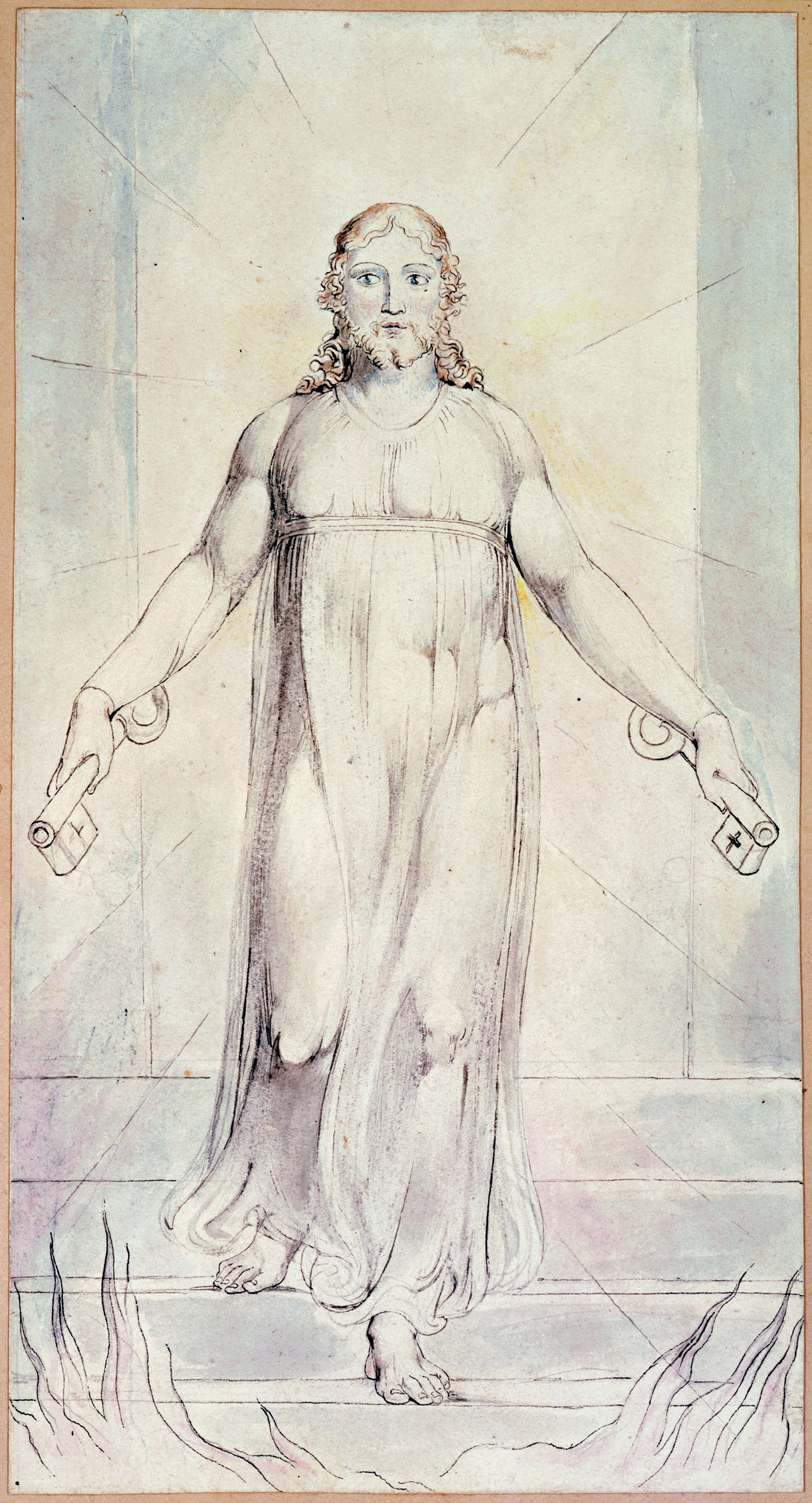 |
Wikipedia Commons
Soldiers Casting Lots for Christ's Garments |
Four Zoas, Night I, Page 5, (E 302) "In Eden,Females sleep the winter in soft silken veils Woven by their own hands to hide them in the darksom grave But Males immortal live renewd by female deaths. in soft Delight they die & they revive in spring with music & songs Enion said Farewell I die I hide. from thy searching eyes So saying--From her [Enion's] bosom weaving soft in Sinewy threads A tabernacle for Jerusalem she sat among the Rocks Singing her lamentation. Tharmas groand among his Clouds Weeping, then bending from his Clouds he stoopd his innocent head And stretching out his holy hand in the vast Deep sublime Turnd round the circle of Destiny with tears & bitter sighs And said. Return O Wanderer when the Day of Clouds is oer"The Garments of Jesus stripped from him before his crucifixion were not all treated the same. Some were divided into four parts to be distributed among the soldiers. Blake may have thought of these as the qualities of his Four Zoas which has served Jesus as his clothing when living in a mortal body, being redivided into parts for the use of ordinary men. The one garment which was woven without seam would remain whole and go to an individual according not to natural but spiritual cause.
Milton, Plate 26 [28], (E 124)
"In Bowlahoola; & as the Spectres choose their affinities
So they are born on Earth, & every Class is determinate
But not by Natural but by Spiritual power alone, Because
The Natural power continually seeks & tends to Destruction
Ending in Death: which would of itself be Eternal Death
And all are Class'd by Spiritual, & not by Natural power.
And every Natural Effect has a Spiritual Cause, and Not
A Natural: for a Natural Cause only seems, it is a Delusion
Of Ulro: & a ratio of the perishing Vegetable Memory."
Matthew 27[35] And they crucified him, and parted his garments, casting lots: that it might be fulfilled which was spoken by the prophet, They parted my garments among them, and upon my vesture did they cast lots.
John 19
[23] Then the soldiers, when they had crucified Jesus, took his garments, and made four parts, to every soldier a part; and also his coat: now the coat was without seam, woven from the top throughout.
[24] They said therefore among themselves, Let us not rend it, but cast lots for it, whose it shall be: that the scripture might be fulfilled, which saith, They parted my raiment among them, and for my vesture they did cast lots. These things therefore the soldiers did.
Jerusalem, Plate 60, (E 210)
"Why wilt thou rend thyself apart, Jerusalem?
And build this Babylon & sacrifice in secret Groves,
Among the Gods of Asia: among the fountains of pitch & nitre
Therefore thy Mountains are become barren Jerusalem!
Thy Valleys, Plains of burning sand. thy Rivers: waters of death
Thy Villages die of the Famine and thy Cities
Beg bread from house to house, lovely Jerusalem
Why wilt thou deface thy beauty & the beauty of thy little-ones
To please thy Idols, in the pretended chastities of Uncircumcision?
Thy Sons are lovelier than Egypt or Assyria; wherefore
Dost thou blacken their beauty by a Secluded place of rest.
And a peculiar Tabernacle, to cut the integuments of beauty
Into veils of tears and sorrows O lovely Jerusalem!
They have perswaded thee to this, therefore their end shall come
And I will lead thee thro the Wilderness in shadow of my cloud
And in my love I will lead thee, lovely Shadow of Sleeping
Albion.Fallel and as resurrected.
This is the Song of the Lamb, sung by Slaves in evening time."
Blake's Sublime Allegory
The Figure of the Garment
by Morton B Paley
Page 130
"For Blake, the seamless garment symbolizes man's perfect body, which must be divided as a prelude to resurrection. It is further possible to view the garment from two perspectives at once, as ' fallen' and as resurrected.
Four Zoas, Night VIII, Page 104 (Second Portion), (E 378) Los said to Enitbarmon Pitying I saw Pitying the Lamb of God Descended thro Jerusalems gates To put off Mystery time after time & as a Man Is born on Earth so was he born of Fair Jerusalem In mysterys woven mantle & in the Robes of Luvah He stood in fair Jerusalem to awake up into Eden The fallen Man but first to Give his vegetated body To be cut off & separated that the Spiritual body may be Reveald"



.jpg)




